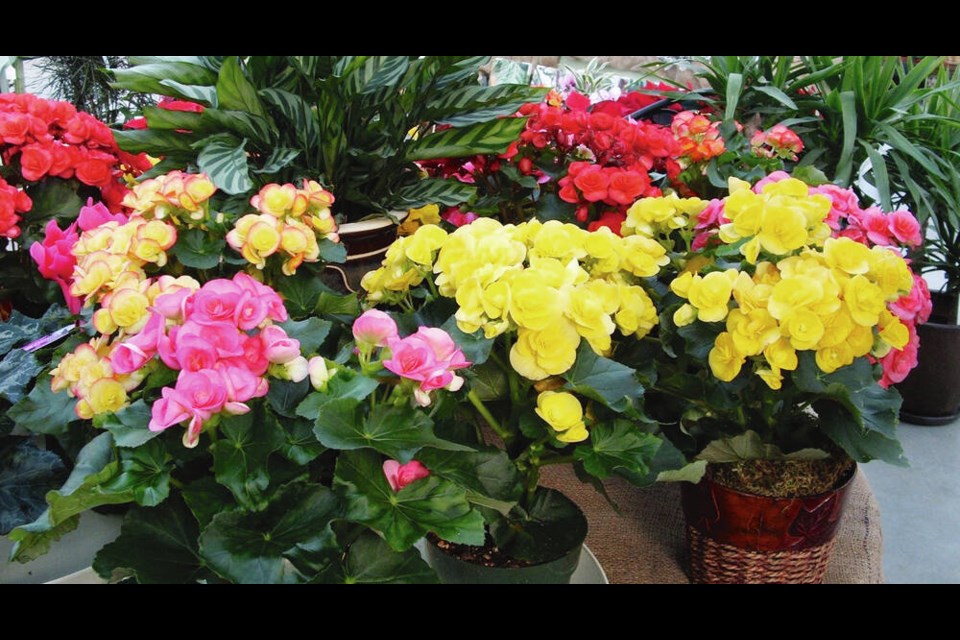Dear Helen: Just before the holidays I was given a flowering house plant I’d not grown before. It is a Rieger begonia with gorgeous lemon and pink blooms. Is this a plant that can be tended and kept or is it one that gives only a single bloom period before it is composted?
F.G.
Rieger begonias, placed in bright indirect light, watered as needed, and protected from hot, drying air, can bloom through the winter and into the spring. Often, if they are cut back in late winter or early spring to around 7.5 cm, they will re-bloom on new growth. The removed stems can be used as cuttings, which root easily in a lightweight potting mix kept only modestly moist.
Trim the cuttings to around an eight-centimetre length, making the bottom cut right below a leaf node.
Dear Helen: Though I am restricted to gardening in containers, I manage to grow a fairly wide selection of vegetables. Because of their long roots, I’ve not tried carrots yet. Do you know whether carrots have been grown successfully in pots?
J.L.
I have a friend who gardens in containers on her deck. She grows garlic, bush beans, salad greens, compact berry bushes, carrots and more.
There are short-rooted carrots that are particularly well suited to growing in containers. West Coast Seeds lists Little Fingers, a carrot with roots that grow just 10 cm long, and Paris Market, a round, golf ball size carrot.
William Dam Seeds lists Adelaide, an 11-centimetre long baby carrot, and Paris Market. T&T Seeds lists Baby Spike (six to 10 cm).
I discovered last year how sensitive carrot seeds and seedlings are to high temperatures. To have carrot plants up and developing strongly by the time a heat wave hits, seed as early as possible. During hot weather, shade the container or move it to the coolest spot possible.
Dear Helen: I’m very fond of snapdragons as cut flowers. Are they hard to grow?
N.A.
I’ve grown snapdragons from seed for years, and have always found them among the easiest flowers to grow. Best of all, most varieties I’ve tried turn out to be short-term perennials, that is the plants re-grow for several years in a row before fading from the scene. They also self-sow modestly.
For all their loveliness, snapdragons are tough plants. I’ve had some grow and bloom in rock heaps — the result of potted dwarf snapdragons perched on the rocks in the previous year. I’ve found that the plants often will grow and bloom where other plants falter.
Transplants are commonly available in the spring. Growing from seed expands choices to unusual varieties. Snapdragons are available in the usual “snapping jaw” bloom style and also in double flowered form.
I start snapdragon seeds early, usually mid-January to mid-February, sowing the tiny seeds on top of a dampened, lightweight mix. Because light promotes good germination, I either press the seeds gently onto the soil or sprinkle only a scant layer of the mix on the seeds before lightly firming it down. Place the seeded flat in bright indirect light and cover it with clear plastic or a pane of glass
The seeds germinate in seven to 14 days.
Dear Helen: For the past five years I’ve been using the needles from the Douglas fir trees on my property to mulch around plants. Shrubs seem to be doing well with this treatment, but I am wondering whether I might be making a mistake with this practice.
B.B.
I’ve never seen such a heavy needle drop from the fir trees in and around my garden. They kept the driveway and roof covered in needles between several sessions of clearing them off. It was impossible to keep them from being tracked through the house. You no doubt had a bountiful harvest of the needles this year.
Coniferous tree needles are highly acidic when they drop from the tree, and are most suitable for use around acid loving plants; however, soil microbes neutralize the acidity and studies have found that they are all right to use, in moderation, around most plants.
The needles can also be added to compost heaps as long as they comprise no more than 10 per cent of the heap’s mass. There, they will slowly decompose for safe use through the garden.



